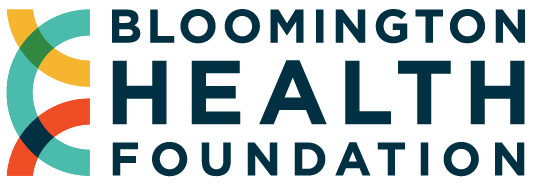Our community is facing significant challenges when it comes to mental health, and a number of barriers are keeping our loved ones and neighbors from getting the care they need when they need it.
First and foremost among those hurdles is the widespread stigma surrounding mental health. Despite so much progress that has been made to understand and identify mental illness, stereotypes and misconceptions persist that create barriers to seeking adequate care.
People struggling with their mental health can find themselves marginalized and isolated, in large part because they feel abandoned by the people and systems that are actually intended to help them in their time of need. And many who are suffering don’t access the resources they desperately need because they don’t know what services are available to them or how to use them.
These challenges can exacerbate the more visible issues in our community like homelessness and substance abuse. For example, more than 60 percent of adolescents in community-based substance use disorder treatment programs also meet diagnostic criteria for another mental illness. It’s a pervasive and unrelenting cycle.
Without the right treatment and care, mental illness can hinder efforts to keep or secure stable housing and employment, perpetuating homelessness. And when people turn to drugs or alcohol as a way to cope with untreated mental health conditions and the stress of homelessness, a cycle of substance abuse begins that is difficult to break without comprehensive intervention.
In Bloomington, homelessness has become one of Mayor Kerry Thomson’s top priorities, with a specific focus on increasing access to long-term mental health treatment for those underserved populations—and Bloomington Health Foundation is eager to help lead and convene efforts to develop collaborative, novel solutions.
Identifying underlying challenges and focusing on solutions
At Bloomington Health Foundation, we recognize the importance of providing accessible and inclusive mental health services for all members of our community.
Collaboration among various stakeholders, including government agencies, nonprofits, healthcare providers, and community organizations is also crucial in addressing the complex interplay of mental health and challenges like homelessness, substance abuse, and crime.
We must work together to develop holistic approaches that address the root causes of these issues and create pathways to recovery and stability for everyone in our community. And there are some important first steps we must take.
Establish a coalition of Peer Support Navigators
Imagine being at your lowest point. When you decide to finally accept the help you need, you’re paired with someone whose job is to help you navigate the complex web of services you need. Just as they become a familiar face and someone you trust, they’re gone—and you’re left feeling even more alone. After enough of these experiences, you lose trust in the entire system, believing it has failed you.
A critical part of the mental health care pathway is having someone to walk with during the journey. That’s why we believe in the importance of a peer support role. A coalition of dedicated navigators—ideally, a peer or someone who has been there—can reestablish healthy relationships and guide those who are seeking care.
Develop a universal tracking system that would allow coordinated efforts
BHF is working with partners in the community to explore a universal system that could allow organizations to more easily work together. Right now, many of the organizations in our community are using different tracking systems, so we lack visibility to coordinate resources and share information between organizations. The idea is to reduce those redundancies, so service providers can more effectively deliver service care.
As we seek to care for those who are in crisis, a universal system could eliminate some inefficiencies that are keeping us from helping people as efficiently and effectively as we could.
Explore peer support programs for the incarcerated
The substance abuse and crime that are often correlated with untreated mental illness can lead to recidivism within the legal system—and incarceration can have a tremendous impact on individuals, their families, and the community. We must work together to strengthen how we identify the needs of those who are incarcerated, guide them through reentry, and get them the support they need to break the cycle and begin a recovery journey.
Community-wide, there have been ongoing discussions about Integrated Reentry and Correctional Support (IRACS) teams. These teams are designed to guide each step of the journey through the criminal justice system—providing peer support within jails to meet people where they are, getting those who are being released to the appropriate recovery resources and treatment, and supporting loved ones and system partners along the way. IRACS peers provide another layer of support for those in need.
There are many communities that have successfully launched IRACS programs with a great deal of success, and in our area, our county leaders have been in countless discussions with community agencies to determine if IRACS is a good fit for our community and how to secure the funding and staffing support it needs long-term. We believe an IRACS program in Bloomington could be an integral part of comprehensive, coordinated intervention that creates lasting change.
What can we do together?
Tackling the mental health stigma is not only a moral imperative—it’s also a practical necessity for building a healthier, more resilient community. It begins with each of us challenging stereotypes, opening dialogue about mental health, and supporting efforts to drive meaningful change. We invite you to fight with us.
Because together, we can empower a community that cares.

Recent Comments